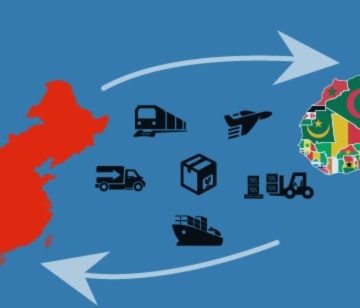The continued threat of potentially crippling tariffs by the United States renders Canada’s economic situation highly volatile. Over three-quarters of Canadian products are exported to the United States, leading Canadian Prime Minister Mark Carney to call the less than reliable bilateral economic relations with the United States “the biggest crisis that [Canadians] have faced in generations.” In response, Prime Minister Carney says that Canada intends to make the diversification of economic partnerships and trade an immediate priority. The EU and Oceania are current favorite regions with which to strengthen ties given seemingly aligned democratic values, as is Asia due to the fast-growing and emerging nature of its economies. Conversely, the potential that the African continent could have at this juncture in Canadian trade has been largely left out of the dialogue regarding how to reduce Canadian dependency on the United States. The current Canada Africa Strategy comes up short in shaping what could be a highly productive partnership that could help secure Canada’s economic future.
The Limitations of Canada’s Current Africa Strategy
The long-awaited Canada Africa Strategy was released in March of 2025, without an accompanying budget to support its goals. While its goals, which include strengthening people-to-people ties, economic cooperation, and human development and human rights, are strong and align with the African Union’s “Agenda 2063” aims, the Canada Africa Strategy focuses heavily on development, peacekeeping, and diplomatic history, than it does on Africa as a key strategic economic partner. In comparison to the Canada Indo-Pacific Strategy, released in 2024, which was backed by $2.3 billion CAD in funding, the Canada Africa Strategy lacks specificity of initiatives and mechanisms through which to accomplish its goals, and the identification of particular countries with which Canada wishes to pursue stronger ties.
Canada stands at a critical juncture where building mutually beneficial partnerships with African nations is essential to securing future opportunities. Currently, the continent is home to 1.4 billion people, which is projected by the UN to increase to 2.5 billion by mid-century. Compared to Canada’s much smaller aging population, the majority of this population will be of working age. The African Continental Free Trade Area (AfCFTA) is currently being implemented and it could be the largest single market in the world, composed of 55 countries. Growth is not uniform across the continent, but seven of the 10 fastest-growing economies in the world are African nations. Yet, despite the evidence of Africa’s exponentially increasing trade significance, there has been no serious attempt to tap into this market potential: Canada’s merchandise trade with Africa was only $15 billion CAD in 2024.
Unfortunately, the West has internalized a narrative that Africa is the subject of a rivalry between great powers as to which foreign country dominates and controls the region. This competitive and exploitative outlook is fundamentally flawed and limits the potential for middle powers, like Canada, to partner meaningfully with African nations. African nations have political and economic agency; while Chinese partnerships have provided significant financial and technological support for infrastructure development through loans with few political strings, fulfilling a keen need of many developing African nations, African nations and businesses are actively seeking out additional (not alternative) partners and opportunities. While Canada cannot match the scale of capital investment seen from global powers like China, Russia, or the United States, it can position itself as a valuable addition by seeking out where its strengths align with African opportunities and priorities.
Goal Alignment and Opportunities for Collaboration
For example, both Canada and Kenya are climate leaders committed to clean energy production and green economic growth through international partnerships. Kenya has a high potential for solar power output, produces minerals needed for renewables, has diplomatic relations to other key suppliers of minerals, like the Democratic of Congo, and has strong government support for, and investment in, green innovation. Given this alignment, Prime Minister Carney should seize this economic and collaborative opportunity by engaging proactively with the Kenyan government and dynamic businesses within this sector, and incorporate these partnerships into Canada’s climate strategy. This could be accomplished through public-private business investment, vocational training, fintech, education exchange, and research and technology funding. More broadly, this would align with the African Union’s Climate Change Action Plan, which outlines the continent’s need for sector innovation and solution-oriented partnerships. Additionally, according to the African Development Bank, despite great power investment in infrastructure, Africa still faces an annual $68 to 108 billion USD gap in terms of the funding required in infrastructure. While Canada may not be the most prominent foreign partner in terms of infrastructure investment, it can provide a higher degree of transparency and credibility, for which there are increasing calls. Throughout all of this, language ties to francophone nations, the high African diaspora in Canada, and Canada’s reputation, should be leveraged.
Africa is one of the most significant regions on the emergent geopolitical and economic horizon. At this pivotal moment in Canadian economic history when Canada has the simultaneous challenge and opportunity to adjust its trading partners according to more updated interests, Canada must position itself to be a mutually beneficial partner with the future African economic powerhouse. The Canadian budget, which is scheduled to be tabled for this fall, is a chance to adequately fund and prioritize the Canada Africa Strategy, which should also be updated to more concretely define specific mechanisms, countries, and the nature of the partnerships. As part of this update, Canadian businesses should be provided with extremely clear guidance and support on engaging with AfCFTA and nation-specific markets. Most importantly, Africa must be reframed by Canada as an essential mutual economic partner, not just a recipient of aid or support. A more bold, detailed, era-appropriate strategy is needed to meet the shifting economic landscape.
Madighan Ryan is a Research Intern at The HORN Institute.
Photo Credits: African Union



